“Universities need academic freedom to function at their best,” said Steven Salaita in his lecture on Feb. 3, at Guilford College. “They just do.”
The lecture, originally scheduled to take place in the Frank Family Science Center, was delivered in the Carnegie Room last Tuesday evening. The event was moved at the request of a family member of the donor who funded the Science Center.
Academic freedom, the occupation and assault of Palestine by Israel and modern forces of colonialism were some of the controversial topics discussed by Salaita, whose visit to Guilford was contentious from the start due to recent controversy.
The University of Illinois at Urbana-Champaign revoked Salaita’s professorship in American Indian studies in August, 2014, for incendiary posts on Twitter expressing criticism of Israel’s actions in the Gaza conflict.
“What we cannot, and will not, tolerate at the University of Illinois are personal and disrespectful words, or actions that demean and abuse either viewpoints themselves or those who express them,” said Urbana-Champaign Chancellor Phyllis Wise in an email statement to students. “We have a particular duty to our students to ensure that they live in a community of scholarship that challenges their assumptions about the world but that also respects their rights as individuals.”
The lawsuit Salaita filed against Urbana-Champaign on Jan. 29, claims that his appointment had actually gone through all the necessary hiring procedures. Salaita was in fact fired, instead of the offer of employment simply being revoked.
Salaita claims firing someone for expressing their political beliefs in a public forum violates academic freedom.
“The basics are that instructors and students won’t face recrimination, administrative recrimination or state recrimination, for articulating positions that others find unlikeable for whatever reason, or for performing unorthodox research that maybe shakes up the status quo a little bit,” said Salaita in his lecture.
According to Salaita, colleges need to be a safe place to push the envelope, but corporate interest and wealthy donors are gaining heavier influence on university governance.
“We don’t want boards of directors who exist traditionally to oversee the business end, not the academic end, of the university to interject themselves in hiring and firing positions,” said Salaita. “Very few of them come from academic backgrounds in the first place. The majority of them come from the corporate world.”
One of the interferences Salaita referred to in his speech was Guilford’s own decision to move the lecture from the original location in Bryan Jr. Auditorium, located in Frank Family Science Center.
Guilford received a request from a member of the Frank family to hold the event in a different building out of respect to their parents who are Jewish.
“I feel a little disappointed that the venue was moved,” said Samir Hazboun ’14. “The message I got from that movement was that if you have a lot of money, you are more valuable than someone who doesn’t have a lot of money.”
President Jane Fernandes disputes the claims that there was pressure on the College to move the talk.
“The donor did not put me under any pressure,” said Fernandes. “It would be different if they had been demanding or threatening, but that was not the case.”
Fernandes adds that she would never cave to pressure from a donor about what is taught at Guilford. She affirms she made the decision to move the event only after consulting with the event organizers to check the possibility of finding a new venue to ensure the event could still take place as planned.
“If they wanted to move it, if they didn’t want to have it there, I had no issue with it,” said senior Josh Weil. “I have absolutely no problem with the fact that this family stood up for what they believe in, just like (Salaita) stood up for what he believes in.”
Weil supports the idea of academic freedom, but wonders at what point someone’s freedom of speech limits others’ ability to learn in a comfortable environment. A problem that, Weil asserts, Guilford struggles with.
“This is not a place that I feel is friendly towards Jews,” said Weil. “This is not a place that (fosters) open dialogue. It takes Jewish voices and makes them feel like they can’t give their opinion.”
Others disagree with Weil’s assertion that Guilford’s atmosphere disadvantages Jewish students.
“You have Students for Justice in Palestine and Palestinian students talking about real facts, talking about the apartheid in Palestine,” said junior Walid Mosarsaa. “(You) have backlash against them and people calling them anti-Semitic, left and right, based on people feeling uncomfortable with the political reality of the situation. And that just shows you the dynamics of power here at Guilford.”
For a college population like Guilford, with personal interest on both sides of the matter, creating open dialogue is especially important.
“In the area of comfort and discomfort, that’s a discourse we hear on campus quite a bit,” said Max Carter, director of the Friends Center and adjunct professor of religious studies. “Talk about Israel/Palestine and the position of some speakers we have here, we are told, makes some students uncomfortable, makes them feel emotionally unsafe. That is a diversionary tactic.
“It takes attention away from the core issue — how do we address a conflict between Israel and the Palestinian people?”



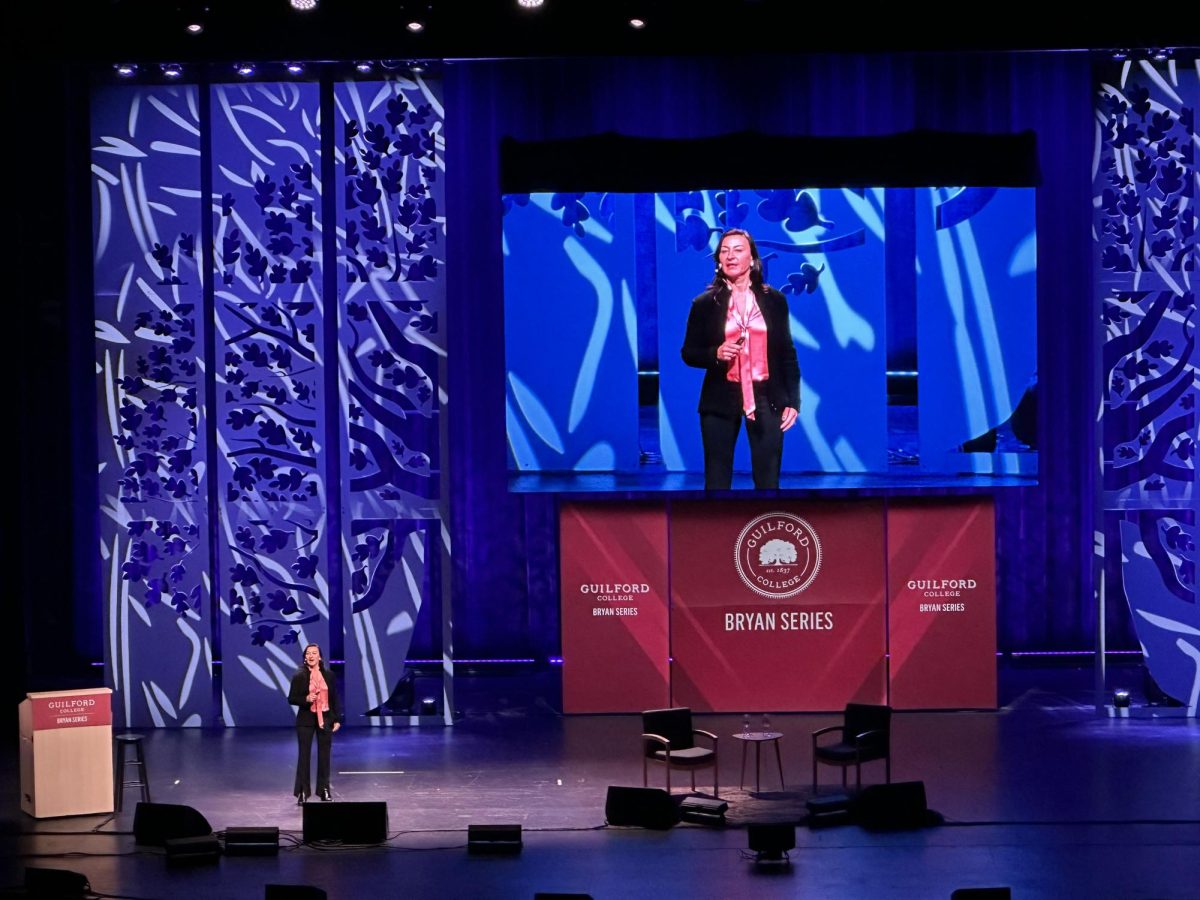
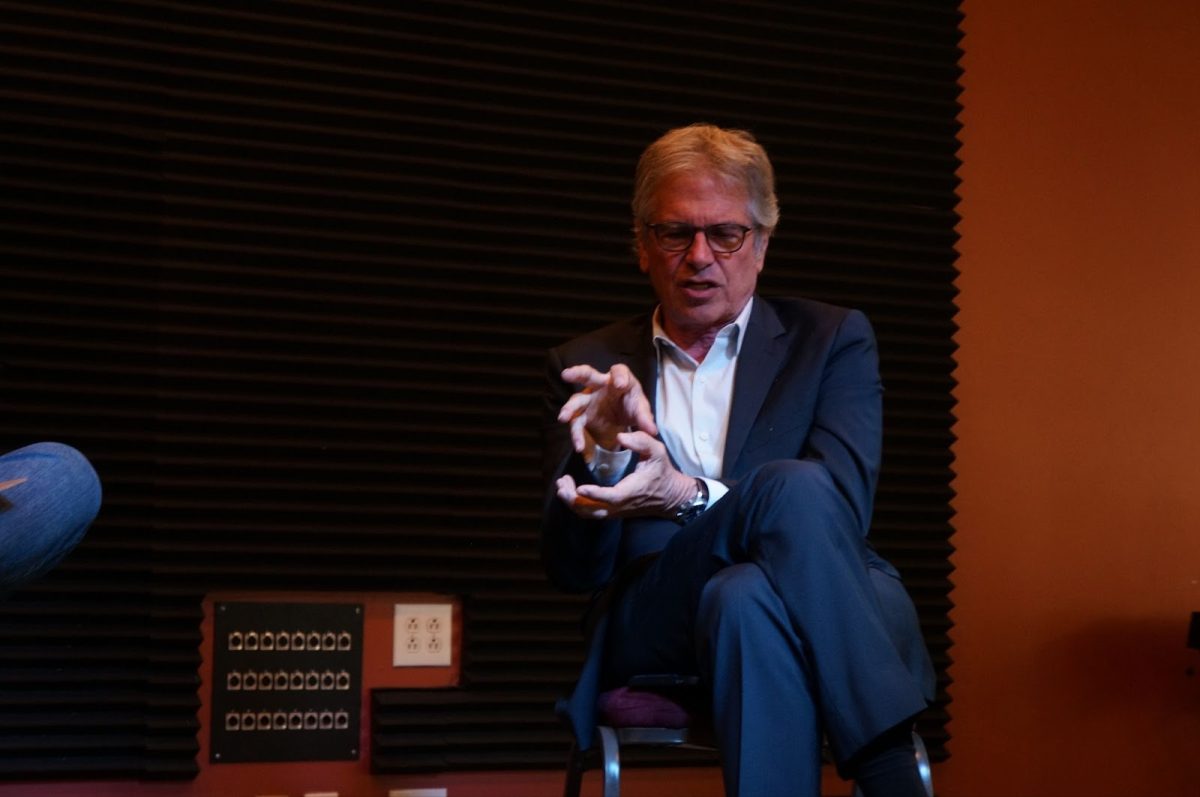
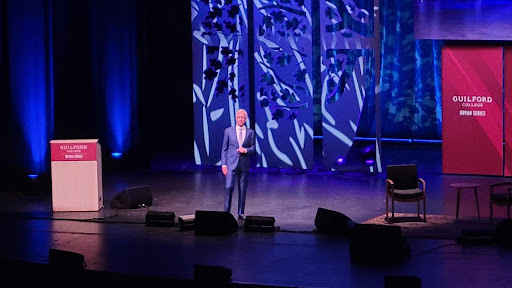




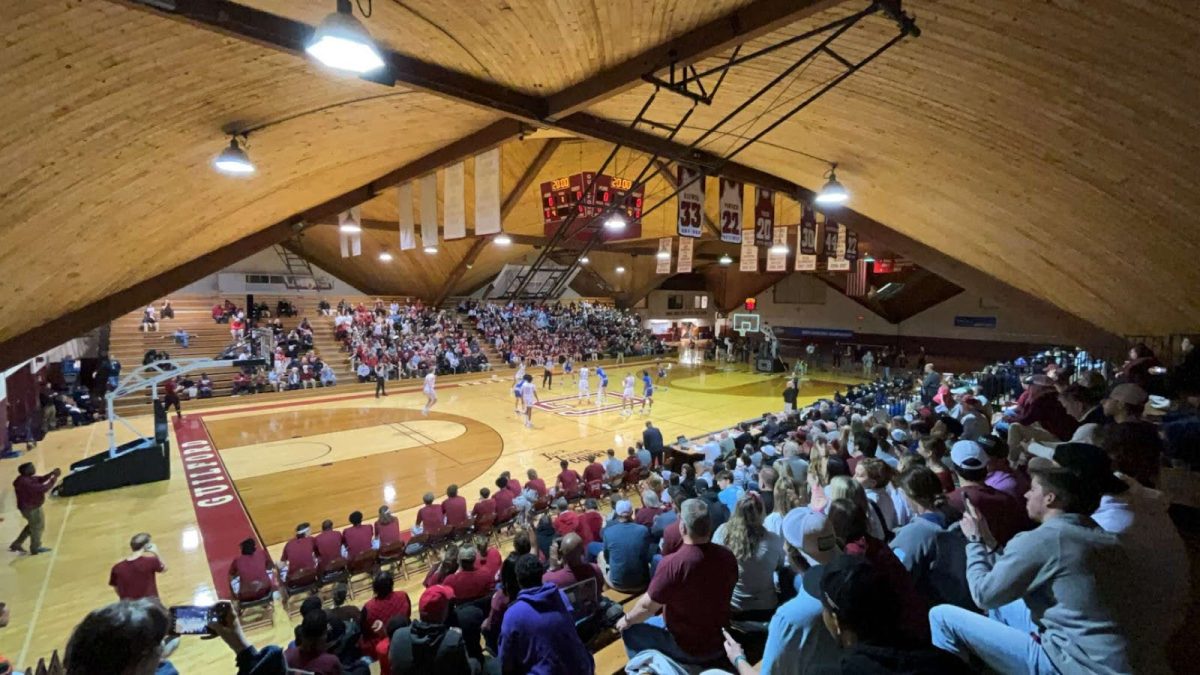
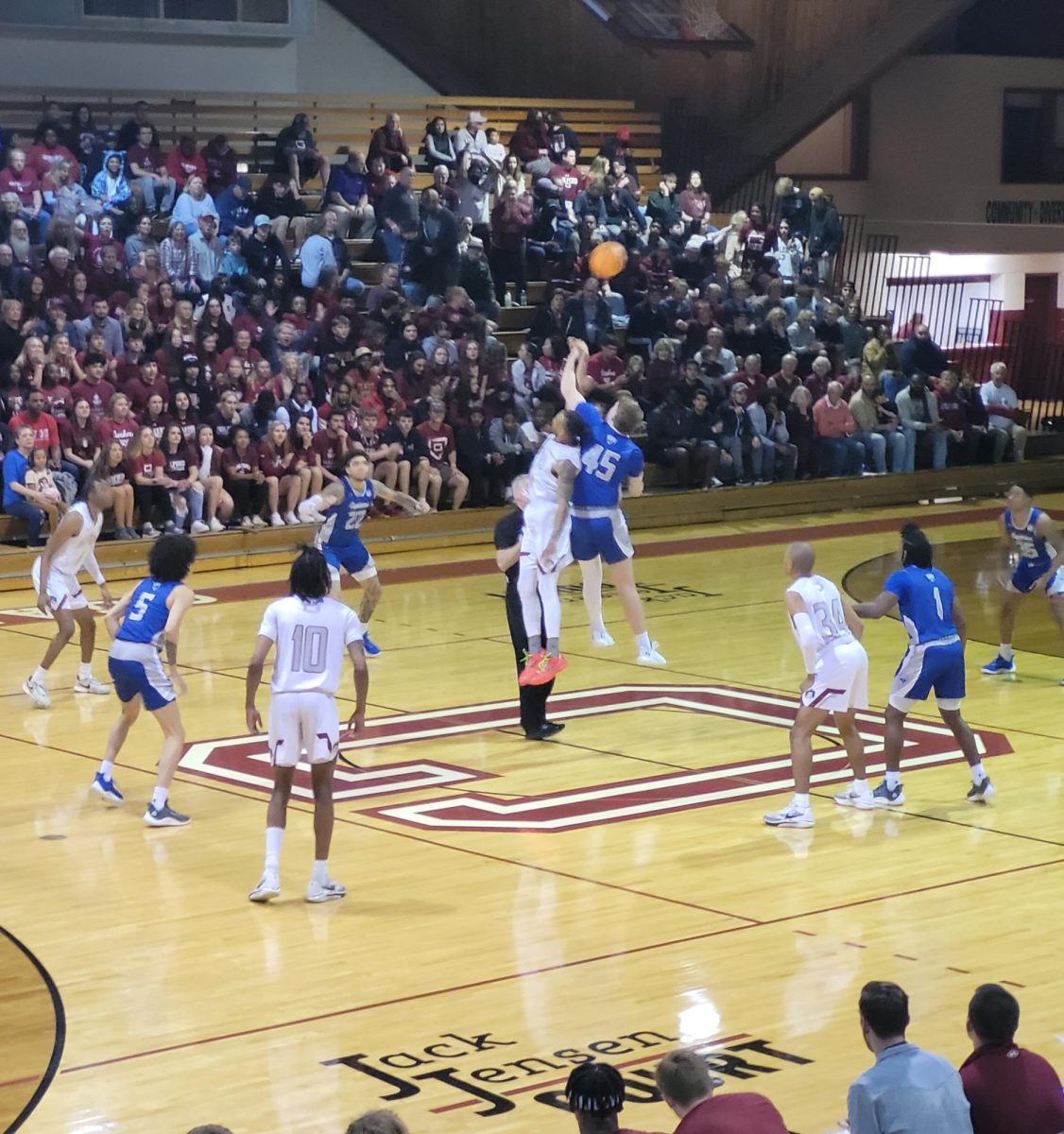

Gary Fouse • Feb 13, 2015 at 8:53 pm
Full disclosure, please. The University of Illinois withdrew its offer when it was revealed that Salaita, after the kidnapping of three Israelis in the West Bank who were later found murdered, stated that he wished more settlers would go missing. UI obviously did not want to be associated with that.
Furthermore, it is inaccurate to refer to the occupation and assault of Palestine because no such nation has ever existed. That land is disputed land to be settled by negotiations between the two parties.
Salaita is now on his victimhood crybaby tour of college campuses because he has made himself toxic to any self-respecting university. He can look forward to a long career of making speeches and feeling sorry for himself.
Gary Fouse
Adj teacher
Univ of California at Irvine, Ext
Gene • Feb 13, 2015 at 3:38 pm
Walid Mosarsaa has a distinguished future ahead of him in the field of irony.